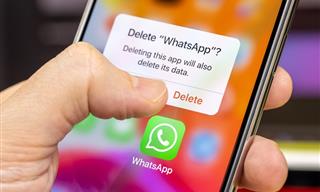
2014 was the year when consumers really started to fear the data breach for real. According to the Identity Theft Research Center, there were 761 breaches that year, affecting more than 83 million accounts. Huge names such as Sony, JP Morgan Chases, Home Depot, the US Postal Service, and Target were some of the notables that proved that even companies with deep IT pockets are at risk.
If you fear for your money, you’re definitely not alone. According to the ISACA IT Risk/Reward Barometer, 94% of consumers have read or heard about data breaches and 61% say that they have a take-charge attitude rather than waiting for something to happen.
But what does “taking charge actually mean? Every additional company that has your payment information puts you more at risk. So, if you enjoy the conveniences of a PayPal account – using it makes it faster to handle online payments – are you increasing the risk of your information being stolen?
Just how safe is PayPal? Should you have a PayPal account or should you pay for all online purchases using a credit card and not add one more company to your list?

According to PayPal your data is safe, but they would say that, wouldn’t they? They state that all your information is encrypted with the highest level of security that is commercially available. Its servers check your browser to ensure that it employs the latest encryption technology and that your data is stored on servers that aren’t directly connected to the internet.
Slava Gomzin, author of Hacking Points of Sale: Payment Application Secrets, Threats, and Solutions, says that “if you have the choice on the Web, always select PayPal.
PayPal even pays hackers to check if they’re able to find any vulnerabilities in its systems. According to Dean Turner, director of security intelligence at PayPal, “if you care about the product and if you care about your customer’s security, this is what you have to do.”
What About Credit Cards?
Credit cards aren’t as straightforward. Cybersecurity advocates often blast the US credit card industry for failing to phase in chip cards. These cards, already in use in European countries and many others, offer an added layer of security that is not present in the United States. The lack of this technology is one of the major reasons why the US is such a huge target for cyber thieves.
The majority of credit cards are issued by banks – an industry that’s more guarded and resistant to some of the cybersecurity practices that PayPal employs. According to the Financial Services Roundtable, the banking industry doesn’t pay hackers to alert them to any security flaws.

The best team of cybersecurity experts can only do so much. The rest is in the hands of the consumer. A study found that only 45% of consumers changed their password regularly, and the most popular ones are still “password” and “123456.” If your password is very easy to remember, it’s probably very easy to hack. Change it.
Furthermore, you have to check your credit card and bank statements as often as possible, don’t use the same password for everything, and don’t click on any links in an email, even if it looks legit.
The Bottom Line
So, should you use PayPal or your credit card? Well, since many data breaches come from physically swiping the card, and because PayPal gets high marks for its security, experts advise using PayPal whenever possible. However, don’t link it to your checking account. Instead, link to a credit card, so that you get your credit card’s fraud protections in addition to PayPal’s.
Source: investopedia
Images: depositphotos

“Please Be Careful, Sir!”- Funny Pics of Safety Fails
These people really don't believe in following any safety measures whatsoever!

These Food Cravings Could Indicate Health Problems
Studies show that certain food cravings and eating habits could be your body's way of telling you that there is a problem.

8 Exercises To Take OFF Your Fitness Routine
Fitness experts strongly advise to skip these unnecessary exercises to avoid injuries and save time

4 Things to Do Before Removing Apps from Your Phone
Removing an app isn't as simple as it sounds. Learn the right way to delete them.

How To Tell If a Mattress Contains Toxic Chemicals
Warning: toxic chemicals may lurking where you least want them - your bed! Find out how to tell whether a mattress contains toxic chemicals in this article.

Autopay Has Its Benefits, but Be a Little Wary of It Too
Automatic payments may be convenient but they have a few risks too.
 5:08
5:08
Erecting a Behemoth: Installation of an Offshore Oilrig
How do they install an offshore oilrig? This video will show you, step by step, how it is done.
 9:05
9:05
A Tunnel Built by a Swarm of Robots - Jaw-Dropping!
Imagine a swarm of robots attacking a mountain and smashing it to pieces...

These Wacky Inventions of the Past Appear Odd to Us Today!
These vintage tech inventions may look very interesting or even incredible, but their practicality today is questionable...
 16:55
16:55
Sleep Inventions: 16 Gadgets to Help You Doze Off
If you frequently struggle with sleep, then trying these amazing new sleep innovations could help change your life.
 9:39
9:39
Science Lesson: How Does Laser Tattoo Removal Work?
How laser removal of tattoos actually works. These guys are going to find out and explain it to us.

14 of the Most Fascinating Specialized Tools You'll See
We bet you haven’t seen these unique tools before!
 5:48
5:48
3 Surefire Ways to Always Identify Pseudoscience
Find out how you can identify pseudoscience, and learn how it differs from actual science.

Incredible Science Breakthroughs That Made News in 2022
Let’s check out some of the most interesting scientific discoveries of 2022.

16 Surprising Things I Never Knew About Sleeping!
Who knew there was so much we don't know about our most popular activity! Here are 16 facts you may not have known about your sleep.
 1:11
1:11
The COOLEST Flames in the World - Jaw-Dropping!
Have you ever seen a flame as epic as this? Find out how it's made...

25 Pics Showing How People in the Past Imagined the Future
Let’s see how the people of the past imagined the future and find out if their fun predictions came true with these 25 vintage pictures
 13:55
13:55
WATCH: What Is the Fingerprint of God's Creation?
The golden pattern, describes the mathematical code of the universe. Is this the scientific evidence of God's will and plan?

2023 in Science: Biggest Discoveries You Missed!
Let’s take a look at the most amazing scientific discoveries that made news this year.
 10:01
10:01
9 UNBELIEVABLE Ice Science Tricks That'l Amaze You
Prepare to be amazed as ice takes center stage in these mind-boggling and unconventional science experiments.

I Bet You Didn't Have a Clue About These Human Body Facts!
The human body is the most complex machine known to mankind, but I bet you don't know these 10 amazing facts about it...
 2:34
2:34
Let's Talk About Size, From Big to Huge.
an incredible discovery that leads us to a better and better understanding of these objects' true size.
 6:33
6:33
The Story of the Internet: Who REALLY Invented It?
Who really invented the internet, and why did they REALLY do it?
 3:16
3:16
Discover How Anesthesia Affects Your Body and Mind
If you were ever curious about how exactly anesthesia works, then this video has all the answers!

The History of Our Planet in One Beautiful Spiral...
This beautiful infographic offers us a remarkable story – the history of Planet Earth.

New Study: There is a Sure Way to Slow Aging
This new study confirms what has long been suspected: The less calories we consume, the slower we age.

Science Breakthrough: An Immunization Against Skin Cancer?
This scientific breakthrough offers hope for those who are struggling with skin cancer. You are now invited to discover more about this revolutionary vaccine.

17 Experiments That Produced Very Bizarre Results...
Take a look at this collection of photos showing how common people performed some fascinating accidental scientific experiments.
 5:56
5:56
What on Earth Is a Black Hole? This Video Explains All...
What on Earth are black holes, how do they affect us, and should we be at all worried about their existence? Find out here.
 5:08
5:08
Experience the True Scale of Heavenly Bodies
Witness the true scale of planets, stars and galaxies in this incredible video that sheds light on size in our universe.

6 Signs That Someone is Listening on Your Cellphone Calls!
With technology advancing all the time, there is the ever-increasing chance of our phones being tapped. Here are 6 signs that your phone could be tapped.

Scientists Develop Wrap That Determines if Food is Spoiled
Scientists at MIT have developed a biodegradable plastic-like wrap that changes color when food goes bad. Find out more…
 13:00
13:00
Visual Illusions: What Color Are These Strawberries?
Tricking our brain into believing that something is one color or shape than another thing is surprisingly easy, but can we explain why?

Here Are the 16 Oldest Household Objects in the World
If you think ancient life is remote, these pre-historic household items will make you think again. Just look at how old they are!

This South African Plant May be the New Cannabis
Is this plant the new cannabis? What will the woolly umbrella plant do for medicine?

5 Robotics Trends Anticipated in 2024
What does 2024 have in store for the field of robotics?
 6:31
6:31
The Psychology Behind Why Some People Are Habitually Late
Now we finally know why some people are habitually late.
 5:05
5:05
How Do the Drugs We Take Affect Our Brain?
We take many pills these days. What is it exactly that they DO to our brain? Find out now.

These Inventions Prove the Middle Ages Were Not So “Dark”
These groundbreaking inventions prove the Middle Ages were not so “dark,” after all!
 7:15
7:15
Toilets: The Greatest Medical Advancement in Human History
While toilets make some people laugh, they are actually a deadly serious medical advancement. This video explains what toilets mean to civilization.

INTERACTIVE: How Personal Items Have Changed Over Time
Some of you will be old enough to remember what many of today's objects used to look like. Here are 20 such objects. Click to see them as they used to be.

Wow! Who Knew That Jupiter Was So Mesmerizing?
Take a look at Jupiter like you've never seen it before!

These Things All Say Something About Your Body Or Mind
There are many things that you can determine about your body and mind just by looking at yourself. Here are 10 things that your body says about you.
 21:53
21:53
24 Confusing Optical Illusions Explained - Fascinating!
How do our eyes fool the brain? Let's find out as a neuroscientist explains the truth behind the most confusing optical illusions.
 2:23
2:23
Introducing the Astronauts That Were Just Launched Into Space
The two astronauts — veteran NASA fliers Bob Behnken and Doug Hurley are honored to have been on this flight. Let's get to know them!
 4:13
4:13
What Does Medicine ACTUALLY Do In the Body? Fascinating.
What really happens in our bodies when we take medicine, have you ever wondered? This video will answer your question.
 5:13
5:13
What is Your Consciousness? A Remarkable Video...
This video by Ted-ed searches to explain the origin of consciousness as well as what is consciousness.


